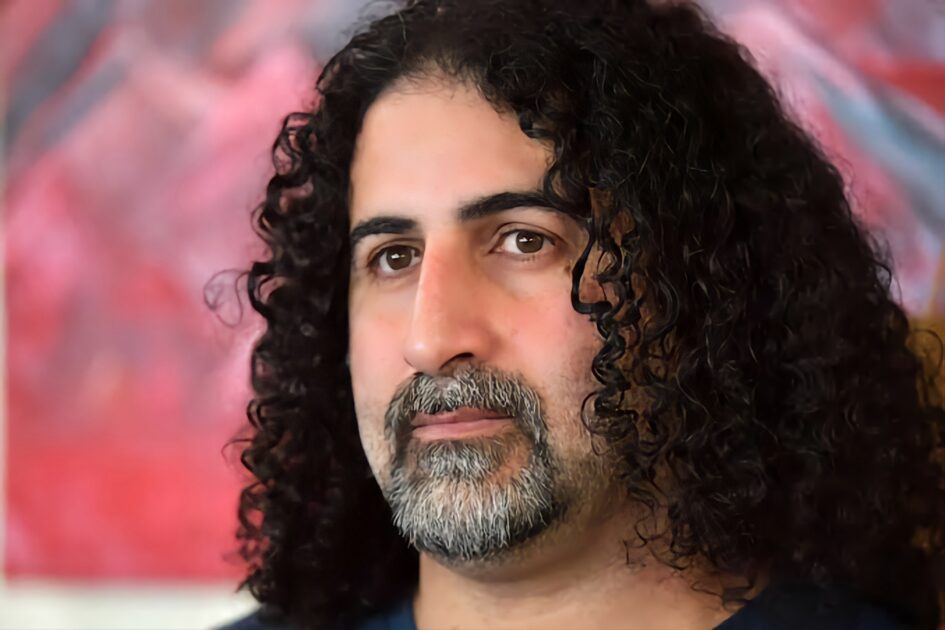France’s toughened stance on terrorism, the country has imposed a lifetime ban on Omar bin Laden, one of Osama bin Laden’s sons, preventing him from ever returning.
This decision comes after Omar was previously expelled from the country in 2023 following his alleged social media posts those authorities deemed to be sympathetic toward terrorism. Initially barred for two years, Omar now faces an indefinite prohibition from setting foot in France.
Omar, who lived in France’s Normandy region for several years, had built a life as an artist alongside his British wife. However, this came to an abrupt halt in October 2023, when French authorities revoked his residency and ordered him to leave.
At the time, a two-year ban was imposed, but French Interior Minister Bruno Retailleau announced on Tuesday that additional steps have now been taken to ensure that Omar “will not be able to return to France for any reason whatsoever.” The minister’s declaration was made via a post on the social media platform X (formerly known as Twitter), emphasizing France’s zero tolerance for anyone linked to terrorism, directly or indirectly.
Background of the Expulsion and Ban

Omar bin Laden’s life in France was largely low-profile compared to his infamous father, Osama bin Laden, the mastermind behind the 9/11 attacks on the United States. Born in 1981, Omar had previously distanced himself from his father’s legacy, choosing instead to pursue a career in art.
He moved to France in 2016, settling in Normandy where he focused on his artistic endeavors, creating paintings that reflect a range of personal and global issues. Despite his efforts to establish a peaceful existence, Omar’s online activity ultimately drew scrutiny from French authorities.
In 2023, his social media posts were flagged as promoting or sympathizing with terrorism, a serious offense under French law. The posts in question have not been publicly disclosed in detail, but their nature was significant enough for the French government to consider him a threat.
Consequently, he was stripped of his residency status and deported. French officials have made it clear that Omar’s presence in the country is no longer acceptable, citing national security concerns.
After his expulsion, Omar bin Laden reportedly relocated to Qatar, where he currently resides. The lifetime ban comes on the heels of a failed legal attempt by Omar to overturn the two-year ban imposed on him.
According to French news outlet Le Parisien, he had challenged the expulsion order, hoping to return to his life in France, but lost the case last week. This legal defeat likely paved the way for the extended ban now imposed by France’s Interior Ministry.
The Broader Context: France’s War on Terrorism
France has been grappling with the threat of terrorism for years, particularly since the devastating attacks on French soil, including the Charlie Hebdo shootings in 2015 and the Bataclan theatre massacre.
As one of Europe’s most heavily targeted nations, France has tightened its counterterrorism laws, intensifying surveillance of individuals with suspected links to extremist ideologies or terrorist groups. The country has also expelled several individuals in recent years as part of its strategy to protect national security.
Interior Minister Bruno Retailleau’s decision to bar Omar bin Laden is seen as part of this larger framework. France’s message is clear: any association with terrorism, however indirect or historical, is grounds for expulsion or banishment. The government’s firm stance reflects its efforts to curb any potential influence that figures associated with terrorism could have on French soil.
While Omar bin Laden has not been accused of any direct terrorist activity, his family’s legacy as part of the al-Qaida network, coupled with his social media conduct, has left him vulnerable to the strict anti-terrorism measures enacted by France.
A Legacy That Looms Large
Omar’s father, Osama bin Laden, remains one of the most infamous figures in modern history, responsible for orchestrating the September 11, 2001, attacks that killed nearly 3,000 people in the U.S. Osama bin Laden was killed by U.S. Navy SEALs in a raid in Pakistan in 2011, but his legacy as the leader of al-Qaida continues to haunt the world. The bin Laden family, once a wealthy and influential Saudi Arabian family, has faced significant public backlash and scrutiny ever since.
Omar has made numerous efforts to distance himself from his father’s actions. In interviews, he has expressed a desire to lead a peaceful life, separate from the violent ideology his father espoused. He even penned a memoir titled Growing Up bin Laden, in which he discussed the challenges of being raised in the shadow of his father’s notoriety. Despite these efforts, his social media activities in France led to the conclusion that he posed a risk to public safety.










Join our Channel...